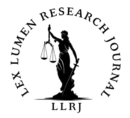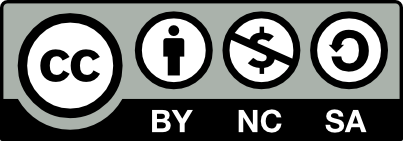Written By Saurav Yadav,
Intern- Lex lumen Research Journal,
January 2025
In a world governed by laws, understanding legal principles is not just the prerogative of lawyers or judges. It is a necessity for everyone, irrespective of their profession or background. Legal knowledge empowers individuals to make informed decisions, assert their rights, and fulfill their responsibilities effectively. By democratizing legal knowledge, we can bridge the gap between courtrooms and classrooms, ensuring that legal awareness becomes a shared resource for all.
Legal education fosters responsible citizenship, enhances problem-solving skills, and promotes justice by equipping individuals with the tools to navigate legal complexities. Introducing basic legal concepts in schools, leveraging technology for awareness, and organizing community workshops can make legal knowledge accessible to a wider audience. Simplifying legal jargon and presenting laws in an understandable manner can further enhance public engagement.
Empowering people with legal knowledge not only strengthens democracy but also ensures a more just and equitable society.
Why Legal Knowledge Matters
Legal knowledge is the backbone of a well-functioning society, empowering individuals to navigate life confidently and responsibly. It serves as a critical tool for understanding and protecting one’s rights. Awareness of constitutional rights, consumer protection laws, and workplace regulations ensures that individuals can identify and challenge injustices, safeguarding their dignity and interests.
Moreover, legal knowledge fosters responsible citizenship by helping people fulfill their civic duties. Understanding laws related to taxes, voting, and public conduct enables individuals to contribute positively to society while avoiding unintentional violations.
In daily life, legal awareness proves invaluable in managing challenges such as drafting agreements, understanding contracts, or resolving disputes. Whether negotiating employment terms or addressing landlord-tenant conflicts, a basic understanding of the law can simplify complex situations and prevent exploitation.
In an increasingly interconnected world, legal knowledge also supports informed decision-making in areas like online transactions, intellectual property, and digital privacy. It empowers individuals to act with confidence and assert their rights in every sphere of life.
Ultimately, legal knowledge is not just for lawyers or lawmakers; it is a life skill that enhances personal empowerment, promotes fairness, and ensures a harmonious and just society.
Bridging the Gap Between Courtrooms and Classrooms
Legal education, despite its significance, remains largely confined to specialized institutions and professionals. To foster a legally aware society, it is essential to make legal knowledge accessible to everyone.
One effective approach is introducing legal education in schools. Including basic legal studies in school curricula can familiarize students with fundamental rights and duties. Topics like consumer rights, environmental laws, and cyber safety can equip young minds with the tools to address realworld challenges confidently.
Technology also offers immense potential for promoting legal awareness. Online platforms, apps, and social media channels can deliver engaging and accessible content to the masses. Interactive videos, infographics, and quizzes can demystify complex legal concepts, making them easier to understand.
Community legal awareness programs, organized by local governments and NGOs, can further extend legal education to underserved areas. Workshops and seminars tailored to address the specific needs of rural and marginalized communities can empower individuals with practical knowledge of their rights and responsibilities.
Finally, simplifying legal jargon is key to bridging the gap. Legal language often intimidates and alienates people. Presenting laws in plain, relatable terms can encourage greater public engagement and foster a culture of legal awareness.
By taking these steps, we can democratize legal knowledge and create a society where everyone can navigate the law with confidence.
Benefits of Legal Awareness
Making legal knowledge accessible to all has transformative benefits for individuals and society. It empowers people by equipping them with the tools to protect their interests, stand against injustices, and advocate for their rights. An informed individual is more confident in navigating legal systems, whether it involves resolving disputes, understanding contracts, or addressing workplace issues.
Legal awareness also contributes significantly to reducing disputes. When people understand and adhere to legal norms, conflicts are less likely to arise. For instance, awareness of tenancy laws, consumer rights, or traffic regulations can help prevent misunderstandings and foster a culture of accountability and compliance.
Moreover, accessible legal knowledge strengthens democracy by fostering an informed and active citizenry. When individuals are aware of their constitutional rights and civic duties, they can participate meaningfully in democratic processes, such as voting and public policymaking. This awareness also encourages accountability among public officials, ensuring that power is exercised responsibly.
By empowering individuals, minimizing conflicts, and promoting active civic engagement, accessible legal knowledge lays the foundation for a more just, harmonious, and vibrant society. It is not just a tool for legal professionals but a vital resource for every citizen in a democratic world.
Conclusion
Legal knowledge is not merely an academic pursuit for professionals in the field; it is a fundamental necessity for every individual. In a society governed by laws, understanding legal principles enables people to make informed decisions, assert their rights, and fulfill their responsibilities effectively. By bridging the gap between courtrooms and classrooms, we can democratize legal knowledge and transform it into a shared resource that benefits all.
The integration of basic legal education into school curricula, leveraging technology to simplify complex concepts, and organizing community awareness programs are practical steps toward this goal. Simplifying legal jargon and presenting laws in an accessible manner can further enhance engagement, ensuring that legal knowledge is no longer intimidating but empowering.
Accessible legal knowledge fosters responsible citizenship, reduces disputes, and strengthens democracy by creating an informed and active populace. It equips individuals to navigate challenges, resolve conflicts, and advocate for justice in their personal and professional lives. Moreover, it promotes fairness, accountability, and equity, laying the foundation for a harmonious society.
Ultimately, legal knowledge is not just a tool for resolving conflicts but a life skill that promotes empowerment, justice, and societal well-being. By making it accessible to all, we can build a more just, informed, and equitable world where individuals are not only aware of their rights but also capable of contributing to a stronger and more vibrant democracy.


